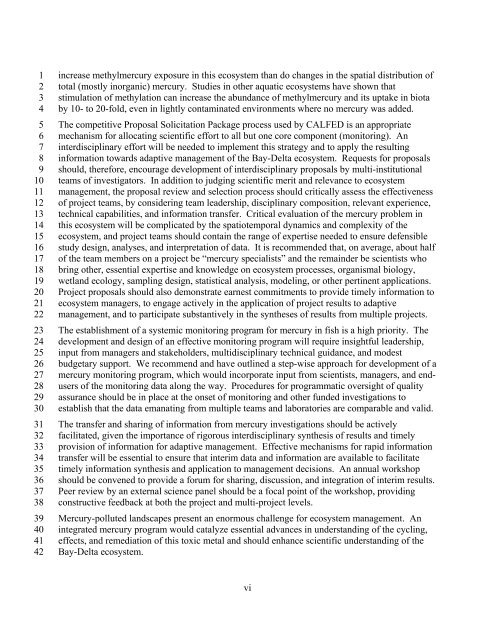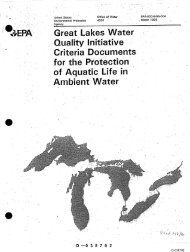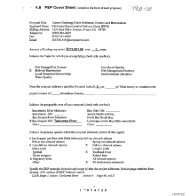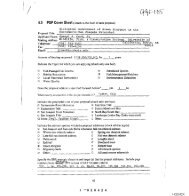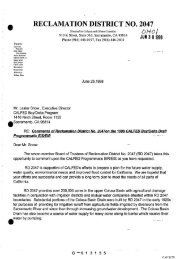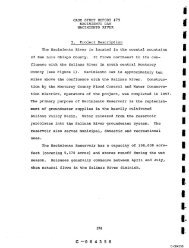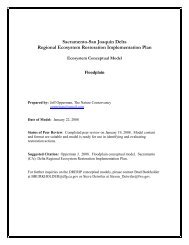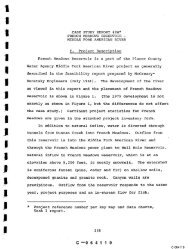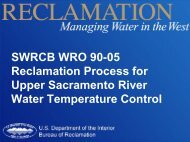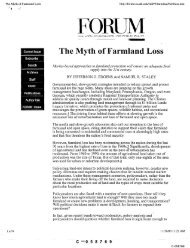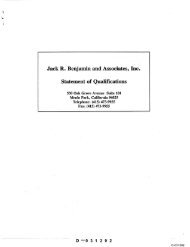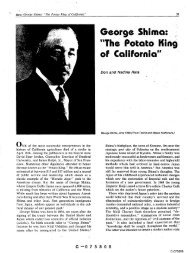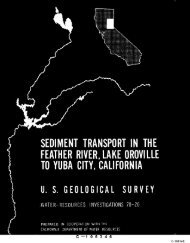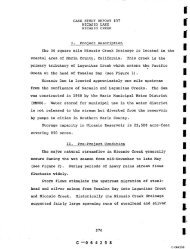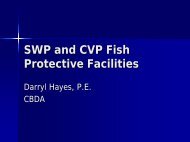Mercury Strategy for the Bay-Delta Ecosystem - CALFED Bay-Delta ...
Mercury Strategy for the Bay-Delta Ecosystem - CALFED Bay-Delta ...
Mercury Strategy for the Bay-Delta Ecosystem - CALFED Bay-Delta ...
Create successful ePaper yourself
Turn your PDF publications into a flip-book with our unique Google optimized e-Paper software.
1<br />
2<br />
3<br />
4<br />
5<br />
6<br />
7<br />
8<br />
9<br />
10<br />
11<br />
12<br />
13<br />
14<br />
15<br />
16<br />
17<br />
18<br />
19<br />
20<br />
21<br />
22<br />
23<br />
24<br />
25<br />
26<br />
27<br />
28<br />
29<br />
30<br />
31<br />
32<br />
33<br />
34<br />
35<br />
36<br />
37<br />
38<br />
39<br />
40<br />
41<br />
42<br />
increase methylmercury exposure in this ecosystem than do changes in <strong>the</strong> spatial distribution of<br />
total (mostly inorganic) mercury. Studies in o<strong>the</strong>r aquatic ecosystems have shown that<br />
stimulation of methylation can increase <strong>the</strong> abundance of methylmercury and its uptake in biota<br />
by 10- to 20-fold, even in lightly contaminated environments where no mercury was added.<br />
The competitive Proposal Solicitation Package process used by <strong>CALFED</strong> is an appropriate<br />
mechanism <strong>for</strong> allocating scientific ef<strong>for</strong>t to all but one core component (monitoring). An<br />
interdisciplinary ef<strong>for</strong>t will be needed to implement this strategy and to apply <strong>the</strong> resulting<br />
in<strong>for</strong>mation towards adaptive management of <strong>the</strong> <strong>Bay</strong>-<strong>Delta</strong> ecosystem. Requests <strong>for</strong> proposals<br />
should, <strong>the</strong>re<strong>for</strong>e, encourage development of interdisciplinary proposals by multi-institutional<br />
teams of investigators. In addition to judging scientific merit and relevance to ecosystem<br />
management, <strong>the</strong> proposal review and selection process should critically assess <strong>the</strong> effectiveness<br />
of project teams, by considering team leadership, disciplinary composition, relevant experience,<br />
technical capabilities, and in<strong>for</strong>mation transfer. Critical evaluation of <strong>the</strong> mercury problem in<br />
this ecosystem will be complicated by <strong>the</strong> spatiotemporal dynamics and complexity of <strong>the</strong><br />
ecosystem, and project teams should contain <strong>the</strong> range of expertise needed to ensure defensible<br />
study design, analyses, and interpretation of data. It is recommended that, on average, about half<br />
of <strong>the</strong> team members on a project be “mercury specialists” and <strong>the</strong> remainder be scientists who<br />
bring o<strong>the</strong>r, essential expertise and knowledge on ecosystem processes, organismal biology,<br />
wetland ecology, sampling design, statistical analysis, modeling, or o<strong>the</strong>r pertinent applications.<br />
Project proposals should also demonstrate earnest commitments to provide timely in<strong>for</strong>mation to<br />
ecosystem managers, to engage actively in <strong>the</strong> application of project results to adaptive<br />
management, and to participate substantively in <strong>the</strong> syn<strong>the</strong>ses of results from multiple projects.<br />
The establishment of a systemic monitoring program <strong>for</strong> mercury in fish is a high priority. The<br />
development and design of an effective monitoring program will require insightful leadership,<br />
input from managers and stakeholders, multidisciplinary technical guidance, and modest<br />
budgetary support. We recommend and have outlined a step-wise approach <strong>for</strong> development of a<br />
mercury monitoring program, which would incorporate input from scientists, managers, and endusers<br />
of <strong>the</strong> monitoring data along <strong>the</strong> way. Procedures <strong>for</strong> programmatic oversight of quality<br />
assurance should be in place at <strong>the</strong> onset of monitoring and o<strong>the</strong>r funded investigations to<br />
establish that <strong>the</strong> data emanating from multiple teams and laboratories are comparable and valid.<br />
The transfer and sharing of in<strong>for</strong>mation from mercury investigations should be actively<br />
facilitated, given <strong>the</strong> importance of rigorous interdisciplinary syn<strong>the</strong>sis of results and timely<br />
provision of in<strong>for</strong>mation <strong>for</strong> adaptive management. Effective mechanisms <strong>for</strong> rapid in<strong>for</strong>mation<br />
transfer will be essential to ensure that interim data and in<strong>for</strong>mation are available to facilitate<br />
timely in<strong>for</strong>mation syn<strong>the</strong>sis and application to management decisions. An annual workshop<br />
should be convened to provide a <strong>for</strong>um <strong>for</strong> sharing, discussion, and integration of interim results.<br />
Peer review by an external science panel should be a focal point of <strong>the</strong> workshop, providing<br />
constructive feedback at both <strong>the</strong> project and multi-project levels.<br />
<strong>Mercury</strong>-polluted landscapes present an enormous challenge <strong>for</strong> ecosystem management. An<br />
integrated mercury program would catalyze essential advances in understanding of <strong>the</strong> cycling,<br />
effects, and remediation of this toxic metal and should enhance scientific understanding of <strong>the</strong><br />
<strong>Bay</strong>-<strong>Delta</strong> ecosystem.<br />
vi


